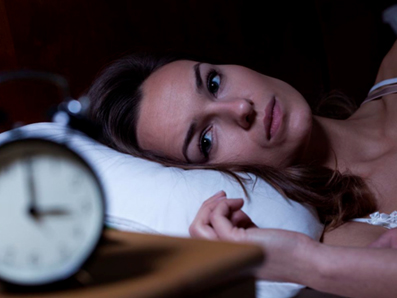
4. Diabetes and Sleep Disorders Are Interconnected! |

![]() Studies indicate that a strong bidirectional link exists between diabetes and sleep problems. This means sleep-related issues can lead to the development of type 2 diabetes (T2D) and vice versa.
Studies indicate that a strong bidirectional link exists between diabetes and sleep problems. This means sleep-related issues can lead to the development of type 2 diabetes (T2D) and vice versa.
![]() ‘Short-sleepers’ who sleep less than 5 hours a night seems to have lower than average glucose tolerance, higher insulin resistance, impaired appetite regulation, and thereby an increased tendency to develop obesity and T2D. On the other hand, individuals with T2D often suffer from a variety of associated difficulties like neuropathic pain, restless leg syndrome, sleep apnea, etc. all of which can cause difficulty in achieving a sound sleep, and can in turn worsen these symptoms. Researchers point out that managing both the conditions, i.e. diabetes and sleep issues, can help improve the overall outcomes. In fact, managing to improve at least one of them can, in turn, make it easier to manage the other.
‘Short-sleepers’ who sleep less than 5 hours a night seems to have lower than average glucose tolerance, higher insulin resistance, impaired appetite regulation, and thereby an increased tendency to develop obesity and T2D. On the other hand, individuals with T2D often suffer from a variety of associated difficulties like neuropathic pain, restless leg syndrome, sleep apnea, etc. all of which can cause difficulty in achieving a sound sleep, and can in turn worsen these symptoms. Researchers point out that managing both the conditions, i.e. diabetes and sleep issues, can help improve the overall outcomes. In fact, managing to improve at least one of them can, in turn, make it easier to manage the other.
![]() Getting more than 7 hours of sleep a night seems to be the key to prevent both obesity and the risk of developing T2D. Regulating the food intake as well as maintaining a good glycemic control can offer better sleep quality and reduce diabetes associated difficulties.
Getting more than 7 hours of sleep a night seems to be the key to prevent both obesity and the risk of developing T2D. Regulating the food intake as well as maintaining a good glycemic control can offer better sleep quality and reduce diabetes associated difficulties.
For enquiries info@jothydev.net.
Please visit: jothydev.net | research.jothydev.com | diabscreenkerala.net | jothydev.com/newsletter
